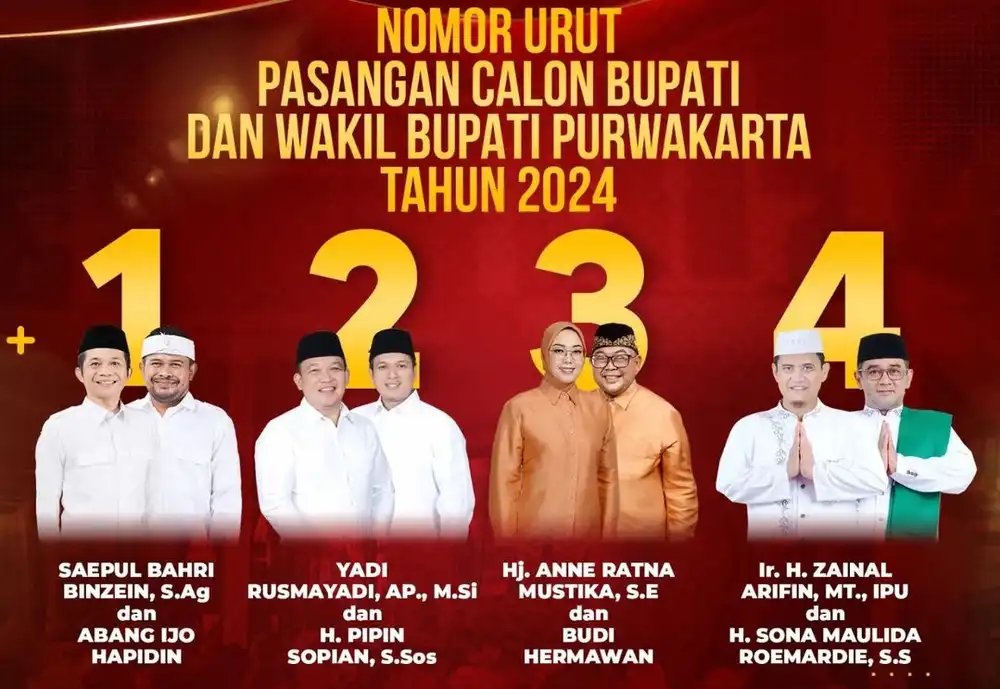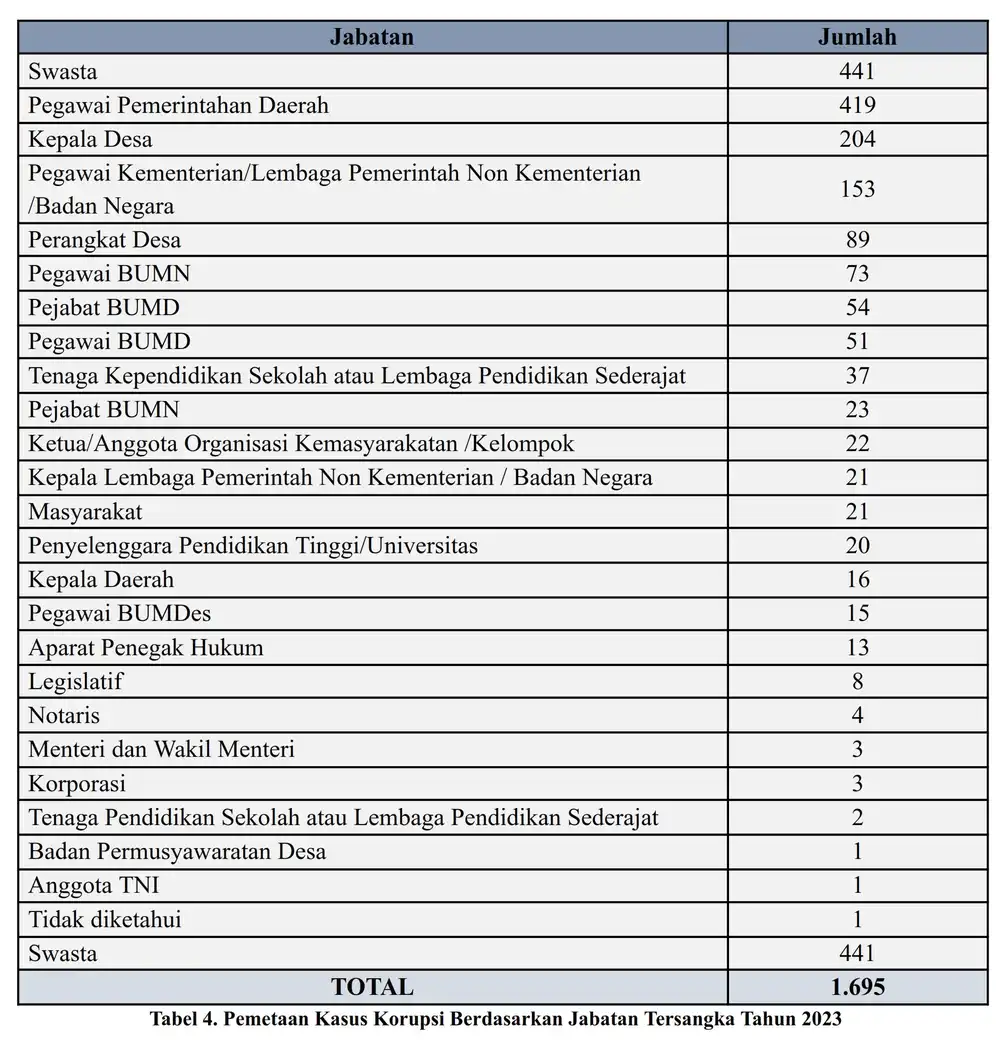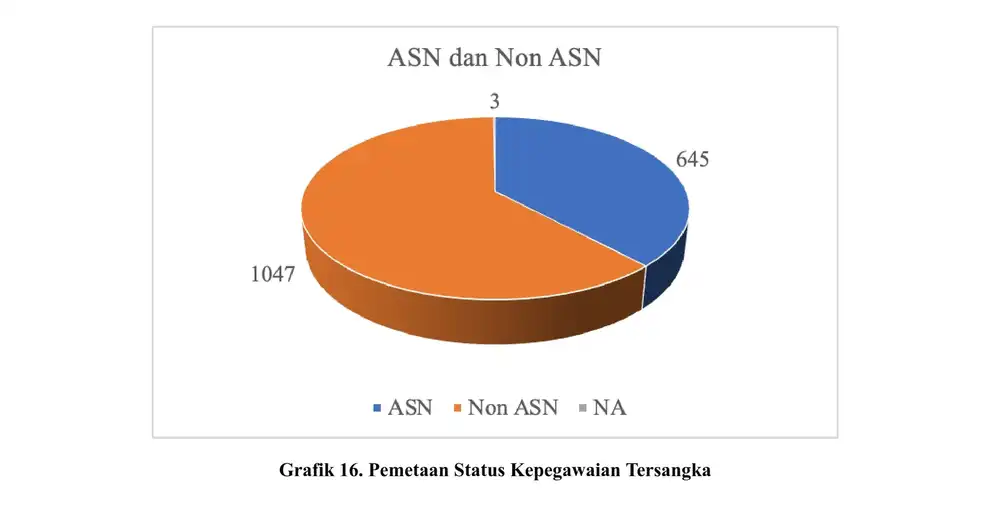
JABARNEWS | PURWAKARTA – Purwakarta is one of the regencies in West Java Province, Indonesia. Like other regencies, Purwakarta is led by a regent and a deputy regent. These leaders are elected democratically through a direct election known as Pemilihan Kepala Daerah (Pilkada), which is organized by the Indonesian General Election Commission (KPU).
Soon, the people of Purwakarta will participate in the 2024 Pilkada to elect the regent and deputy regent of Purwakarta. The election process is in the campaign phase, which runs until November 23, 2024. During this period, each candidate pair (known as ‘paslon’) is allowed to present their vision, mission, and key programs to the people of Purwakarta.
In this democratic event, four candidate pairs are running for the positions of regent and deputy regent. These candidates have already been assigned their respective ballot numbers, which will be used throughout the campaign period and will appear on the ballots for the election on November 27, 2024.
The four candidate pairs are ZEINJO (Saepul Bahri Binzein – Abang Ijo Hapidin) with number 1, YAKIN (Yadi Rusmayadi and Pipin Sopian) with number 2, Anne-Budi (Anne Ratna Mustika and Budi Hermawan) with number 3, and ZASON (Zainal Arifin and Sona Maulida Roemardie) with number 4.

Each candidate pair has outlined their vision and mission for developing Purwakarta over the next five years, which were publicly shared by the KPU of Purwakarta through an Instagram post on @purwakartakpu on September 15, 2024.
However, a notable omission in the vision and mission statements of all four candidate pairs is any explicit mention of anti-corruption efforts. There is no clear or direct reference to combating corruption proposed by the candidates. The word “corruption” itself is absent from the mission statements of all four contenders for the regional leadership in Purwakarta. (Click here to see the missions of candidates number 1, 2, 3, and 4)
Meanwhile, according to the 2023 Corruption Trends Monitoring Report from Indonesia Corruption Watch (ICW), there were 791 corruption cases in Indonesia throughout 2023, with 1,695 individuals named as suspects by the police, prosecutors, and the Indonesia’s Corruption Eradication Commission (KPK). Among these 1,695 suspects, 16 were regional heads, and 419 were local government officials, at both the provincial and regency/city levels.

In the same report, ICW highlighted that 38% of the 1,695 individuals named as suspects were civil servants (Aparatur Sipil Negara, ASN), while 61.8% were non-ASN individuals, and the remaining 0.2% were corporations.

The rampant involvement of regional heads and government officials in corruption cases in Indonesia serves as one of the key considerations for voters when choosing leaders who have a clear and strong commitment to running a corruption-free government. This issue is also critical for the people of Purwakarta as they decide who will lead their region.
Although the issue of anti-corruption is one of the main problems often associated with local government, none of the four pairs of candidates explicitly, clearly, and plainly state their commitment to combating corruption in their vision and mission, as evidenced by the absence of the term ‘corruption’ implied in their mission statements.
The Regent and Vice Regent Candidates Must Commit to Ensuring Their Programs Are More Than Just ‘Carried Out’
Shela Amelia, a college student and the coordinator of the Purwakarta Student Executive Board (BEM) Alliance, critically addressed the anti-corruption commitment of the candidates for Purwakarta regent and vice-regent. According to Shela, the increasing number of corruption cases involving regional leaders highlights the importance of incorporating anti-corruption issues into the candidates’ vision and mission statements.
“As a young person and a voter, I believe it’s crucial to explicitly include anti-corruption issues in every candidate’s vision and mission. Corruption often hinders development and public services,” Shela stated.
Shela emphasized that the public needs clear and firm commitments from regional head candidates regarding efforts to combat corruption in Purwakarta. She also pointed out that the language used in vision and mission statements might be difficult for some citizens to understand.
“Inclusivity is key here. The phrases used must be easily understood by all layers of society. Try using more accessible narratives,” Shela added.





